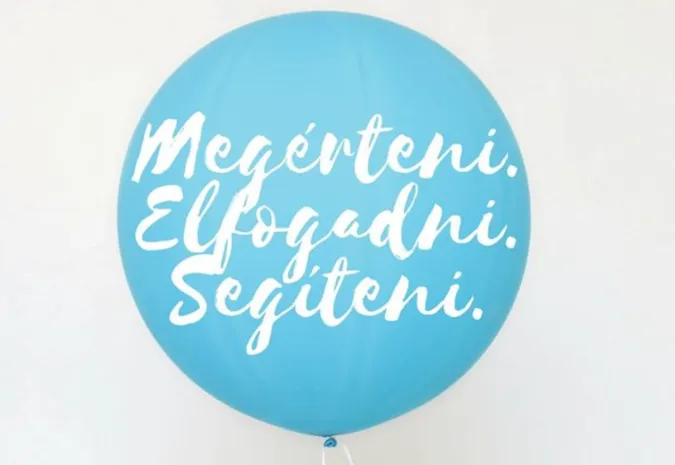
WORLD AUTISM – WITH THE LORNA OF LOHONYAI
World Autism Day (April 2) was designated by the United Nations in 2007 to draw the world’s attention to autism, which affects tens of millions on Earth. The UN resolution calls on member states to take steps to raise awareness of autism in their societies as widely as possible. Autism is a condition or otherwise a disability that leads to a different development. The official term used today is autism spectrum disorder, which affects at least one in a hundred people. On the occasion of the World Day, the guest of the Jászberényi City Library was the writer Dóra Lohonyai, who wrote about her own life and struggles, which she had fought with her children for the past 13 years. We attended the writer-reader meeting with some members of Jászság groups 2 and 4 – dressed in blue – because we consider it important to broaden the horizons of young people, and we also aim to accept otherness and empathy. As a mother of three – reading Dora’s book – I flipped through the pages with constant stomach cramps, as so far I couldn’t imagine what a mother raising an autistic child (ren) would go through. Struggles, sleepless nights, despair, anger, feelings of helplessness are all there between the lines. I told the kids about these before we met the writer. With a writer who, despite all of this – or perhaps because of it – is one of the most balanced moms who thinks with gratitude about every day she can spend with her children. His life is a good example for us and a guide. With its story, it really achieves its purpose and introduces and accepts autism to many people. We bought his book Strikes and Wing Strikes, published last year, so kids can read about it at any time. Andrea Hábenciusnalla Balla
He has always been preoccupied with autism as a differentness as a separate outlook on life. Until now, it was not entirely tangible how people with autism live, how they think and act – today I have received answers to many things. However, I am still curious and would like to dive deeper into the subject, I find it extremely interesting. The writer, Dóra Lohonyai, showed gratitude and joy that they can live their lives happily despite all the difficulties. However, he also talked about the difficulties and doubts that overwhelmed him at first, making the performance really enjoyable. Although many of us can’t even imagine ourselves in our situation, based on the open conversation, we agreed with a lot of his thoughts and felt a bit like his own story, and he evoked a lot of new thoughts in us. In addition to the information, we were able to gain motivation and a little notion of sincere happiness. Füle Viktória
When I heard that I had the opportunity to go to this lecture, I immediately got the opportunity, as it was a huge opportunity for me, as I would like to address this topic later. The writer, Dóra Lohonyai, somehow conjured up closer to my peers with autism. I’ve heard about how much hurt children are fundamentally disadvantaged and are subjected to a lot of negative criticism, which makes the everyday life much harder. We can’t imagine how hard it can be to accept the fact and live with it, to make sacrifices, but this evening I could see a little deeper and hear firsthand Dora’s own experiences and feelings because of her open personality. People with autism are much better able to appreciate the little things. By the end, I would leave enough to never condemn anyone and accept each other. Nikolett Juhász-Aba
About the writer:
“I am Dóra Lohonyai, first a person, then a mother, an autism activist, a writer, a businesswoman, a destiny navigator. My life has changed radically thanks to my children. The first two out of three are autistic. My son is mildly mentally handicapped and has Tourette’s syndrome. They are both confused. My third child is traditionally developed, but not in the least average. I raise them alone. I wrote my first book about them and for them. My goal is for as many people as possible to learn about and accept autism, which now affects every 100th person. ”


